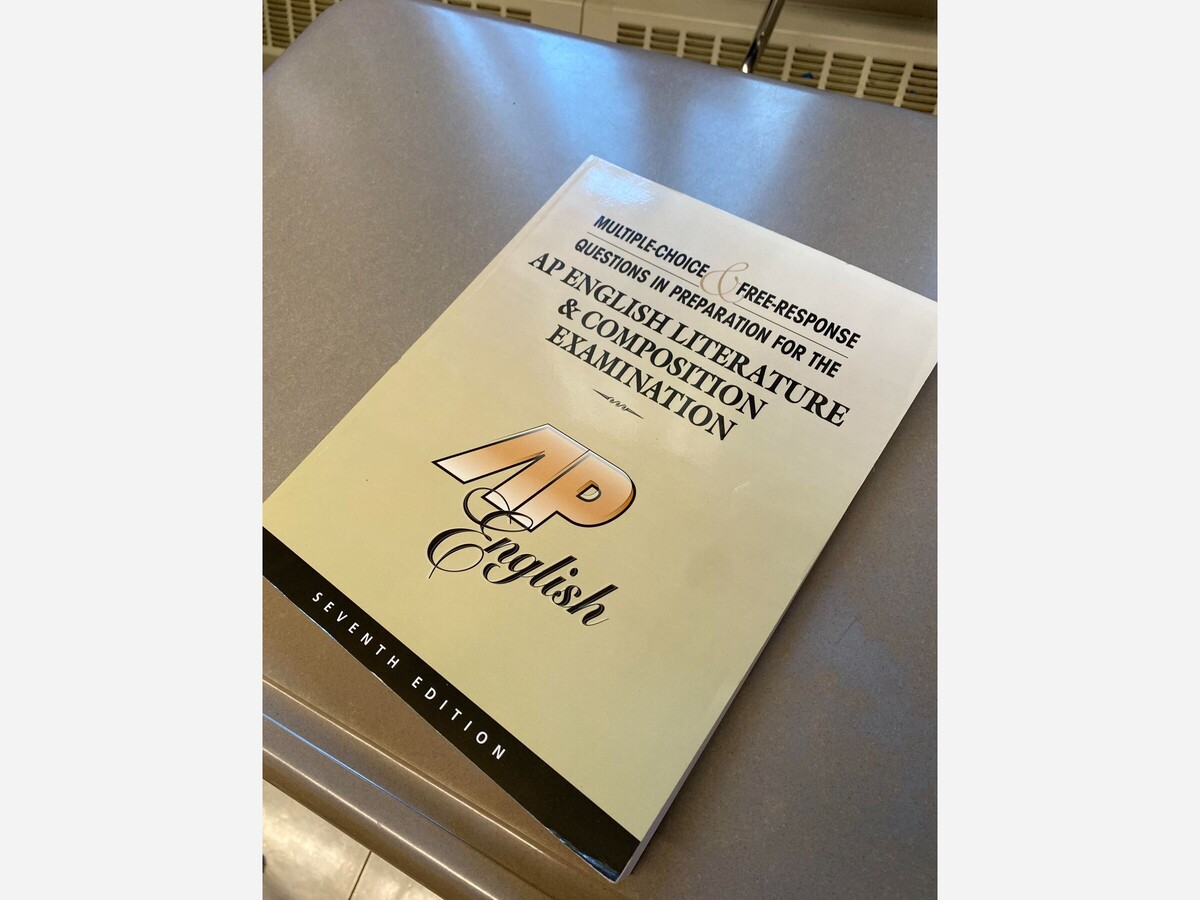Image


EHHS students took the yearly AP exams from May 1st to May 8th for the chance to earn college credit. Advanced Placement exams were first implemented in 1952. It was initially in response to the Cold War, as well as fears that students were not achieving their full potential. With the AP program, students were able to take college-level classes in high school. Additionally, if a student took an AP class in high school, they would not have to take the same class in college. A year after the program was implemented, the College Board began managing tests.
This year at EHHS, AP classes included U.S. Government and Politics, Psychology, English Literature, Statistics, U.S. History, Calculus, and Computer Science Principles. There are also other AP classes that did not run this year, such as AP Biology and AP Chemistry.
AP U.S. Government and Politics is taught by history teacher Mr. Bryson Wilson. This is his first year teaching the course, but he has taught AP U.S. History in the past. Mr. Wilson estimates that about 50% of his students took the AP Gov exam this year. The curriculum focuses on civil liberties and rights, new legislation, and Supreme Court decisions. They often focus on case studies and relating those to other relevant cases. The rest of the year will focus on essays and projects, and will be less intense than the class before the AP exam.
AP Psychology is taught by psychology teacher Mr. Mark Tolla. This is his fifteenth year teaching the course. Mr. Tolla estimates that about three quarters of his students took the AP Psychology exam this year. The curriculum focuses on many different psychological perspectives, as well as disorders and treatments. In recent years, the course has been shifting in a more scientific direction, as opposed to less concrete topics. Mr. Tolla’s goal is for at least 80% of his students to pass the exam, or to at least surpass the average of 65%. The AP Psychology final is a little different from other AP finals at EHHS. Mr. Tolla has students take a practice AP test before the actual exam as the final for the class. This serves as a predictive test to estimate how students will perform on the AP exam. Additionally, it gives students a good idea of what topics they need to study more. For the rest of the year, students will focus more on experimentation and application. Mr. Tolla says that AP Psychology is often considered the easiest AP course at EHHS. Mr. Tolla says, “I want to encourage students who are on the fence about whether they’ll go to college or not to take that step and see what they are capable of.”
AP English Literature is taught by English teacher Mrs. Lisa Gardner. This is her sixth year teaching the course. This year, two students took the AP exam. Many did not because the class doubles an ECE course, which also counts as college credit. This year is the first year the class has been a dual course, and Mrs. Gardner has had to accommodate and adjust the course accordingly. The class mostly focuses on skills and application, and students spend a lot of time practicing and polishing their skills. The final for the class does not include an exam, but rather a longer author study the students work on all year. It also includes wrapping up previous units, reading additional texts, and more group projects.
AP Calculus is taught by Mrs. Jennifer Howlett. This is her sixth year teaching the course. This year, three out of six students took the AP exam. Mrs. Howlett teaches both her regular and AP courses in a similar manner, and finds different challenges in both. Practice includes an equal focus on multiple choice and free response questions. Mrs. Howlett typically has students solve multiple choice problems individually, and free response questions as a group.
While students can earn college credit through AP classes, they can also earn it from Early College Experience (ECE) classes. They provide a way to get college credit without taking an AP test. Mr. Wilson believes students should take every possible opportunity for success available to them, including both AP and ECE classes. Mr. Tolla prefers AP classes, and shows no interest in giving AP Psychology ECE credit. Mrs. Gardner believes students should decide which type of class works best for them for their future. Mrs. Howlett is interested in making AP Calculus a dual ECE course. Abigail Brooks, a senior who takes both AP and ECE classes, says, “I like ECE a lot better than AP because it is a different opportunity to get college credit that is easier to transfer. Plus, there is no big test at the end.” It is up to individual students to decide what classes work best for them.